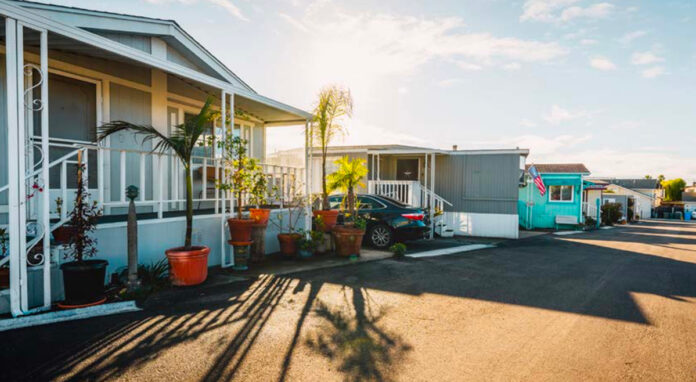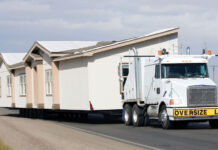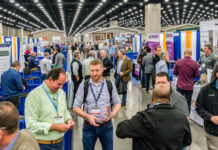By Lesli Gooch and Mark Bowersox
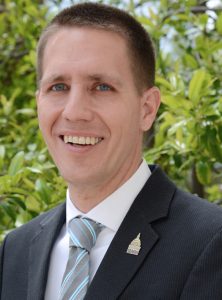
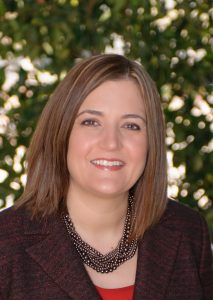
From the White House to Congress to state and local legislatures, solving the nation’s housing supply shortage has become a critical priority. Policymakers at all levels of government are hearing about the rising cost of housing and they are eager to explore policy solutions. In this environment, MHI’s efforts to engage policymakers about manufactured housing has placed the industry at the forefront of recent discussions about solving the nation’s housing supply crisis.
A recent announcement by the White House about actions the administration is taking to address the nation’s housing supply shortage included HUD’s actions around manufactured housing, noting that “manufactured housing provides an essential path to increasing overall housing supply and offers significant savings over site-built housing.”
The bottom line is that the importance of the manufactured housing industry is being recognized — when policymakers talk about housing supply, manufactured housing is discussed as an important part of the solution.
The national building code, the HUD code, that manufactured¬ homes are constructed to has emerged as a federal seal of approval for quality, ensuring buyers receive resilient, energy efficient homes at prices within reach thanks to the economies of scale that the federal building code facilitates.
Advocacy for Attainable Homeownership
In addition to elevating the homes themselves, though, MHI’s work ensures that policymakers understand the range of locations where homes can be placed. The variety of designs that exist for today’s HUD code manufactured homes, such as single-section, multi-section, CrossMod, duplexes, and ADUs allow manufactured homes to meet a wide range of needs around the country. MHI’s work includes highlighting the importance of land-lease communities as a critical affordable housing model. About 30 percent of the manufactured homes produced are placed in communities. The financial and lifestyle benefits of owning a manufactured home in a land-lease community have resulted in millions of individuals and families choosing this housing option.
The desirability of land-lease communities is evidenced in both U.S. Census data and independent research conducted by MHI, showing manufactured housing community residents report high levels of satisfaction and that they are likely to recommend land-lease community living to others. The research shows that the satisfaction levels are increasing. Low vacancy rates and waiting lists also demonstrate the strong appeal of this hybrid-homeowership option.
For those who have visited or have lived in a land lease community, it is no surprise to see such strong satisfaction and demand. MHI research shows that affordability is consistently a key reason for choosing a land-lease community over other options, including:
- Having more space
- Not having to share walls with a neighbor and, having an immediate outdoor space
- Pools, walking paths, and trails
- Parks
- Fitness centers
- Lawn Care
Other areas that residents and potential residents favor are the social events, such as summer barbecues and movie nights.
Value of Community Living
With U.S. housing costs universally skyrocketing, MHI research shows that the majority of community residents believe their rent is the same or lower than other housing options.
It is critical that the land-lease segment of the industry disallows the anecdote to be the narrative about community living. The facts are clearly on the industry’s side, and through continued advocacy efforts MHI will continue to communicate the positive housing option that land-lease communities offer, with desirable homes at price points within reach, and with a community setting that offers more than a house, but a lifestyle.
While there is strong demand by consumers and exceptionally positive resident feedback, the growth of the land lease community sector is hindered by barriers, such as zoning, which limit the expansion of the model. Across the country, there are countless examples of state and local zoning, planning, and development restrictions that either severely limit or outright prohibit the placement of a new manufactured home or the development of a new community.
The recent increased attention to manufactured housing has helped raise awareness about these barriers and MHI has expanded engagement with policymakers to address the barriers.
Beyond federal-level advocacy to address barriers, partnerships with state associations and National Community Council members have allowed MHI to provide support for conversations at the state and local levels about expanding access to manufactured housing and land-lease communities. To do this work effectively, we constantly are updating the research and information MHI uses to provide the clearest picture, and dispel misconceptions or misperceptions about homes and communities our industry creates.
Furthermore, by working with our members, MHI has had the opportunity to bring manufactured homes and other dwellings our industry builds to events where policymakers are able to personally tour the homes, see the depth of quality housing our industry creates, and hear about the benefits of land-lease community living.
Through constant and diligent engagement MHI strives to elevate and grow awareness and understanding of the vital role of manufactured housing and land-lease communities.
Convene with Industry Colleagues
MHI’s work does not end with the policymakers. Providing support and resources for community owners to create high quality communities is equally as important as raising awareness with lawmakers. Through events like our National Communities Council forums in the Fall and Spring, MHI provides spaces and opportunities for community owners and operators to learn from one another, build connections, and improve their businesses.
MHI’s 2024 National Communities Council Fall Leadership Forum will take place on Nov. 13-15 at the Westin Michigan Avenue in Chicago. Top-notch speakers will share real-world strategies that attendees can put into action now to strengthen their businesses. The program focuses on topics most relevant to manufactured home community leaders — owners, managers, manufacturers, service providers, brokers, lenders, and consultants.
Beyond events, MHI works to support communities through education programs. Through MHI’s two-part Accredited Community Manager education program, land-lease community owners, managers, and workers can expand their skills on a host of topics related to managing communities, from best practices for resident relations to federal and state laws that govern community operations to budget analysis.
It is undeniable that manufactured housing communities play an important role in addressing the national housing crisis. As Rep. Marc Molinaro — (R) N.Y., put it when he toured manufactured homes on the National Mall in June… “these homes build a community.”
As the only national trade association that represents every segment of the factory-built housing industry, MHI seeks to elevate housing innovation and expand attainable homeownership in America. At a time when policymakers on both sides of the political aisle and from all across the country are seeking ways to address the housing supply shortage, MHI welcomes the opportunity to support land lease community owners and operators by facilitating homeownership through manufactured housing for more people. Together, MHI and its members will harness the opportunities before and continue to elevate the industry to grow the market across the country.
Dr. Lesli Gooch is the CEO of the Manufactured Housing Institute, the national trade organization representing all aspects of the factory-built housing industries. Mark Bowersox is a seasoned trade association executive with experience leading nonprofits at both the state and national levels. In his role as president of the Manufactured Housing Institute he is dedicated to elevating housing innovation and expanding attainable homeownership. Bowersox is a federally registered lobbyist and regularly speaks on behalf of MHI and the industry to a variety of constituent groups and industry associations.

